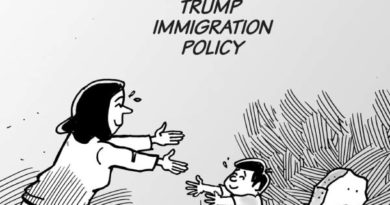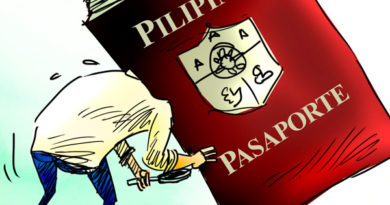EDITORIAL: BANGKOK POST- Forest row begs solution

.
For over four decades, Bo Kaew villagers in Chaiyaphum’s Kon San district have been haunted by the spectre of eviction, as the Forest Industry Organisation (FIO) battles to turn their land into eucalyptus plantations.
Villagers say their claim to the land is supported by records dating back to 1953. These documents are evidence that their settlements existed before the area became a forest reserve in 1973 and the FIO was granted a state concession for a 4,000-rai plantation. Villagers have faced eviction threats in various forms ever since.
Seeking a definitive ruling, the FIO took the case to court, which eventually ruled in its favour. As a result, some 100 Bo Kaew villagers were set to be kicked off their land last Tuesday, after the FIO and police issued a deadline for them to leave under the court order.
The forest dwellers were handed a last-minute reprieve when Minister of Natural Resources and Environment Varawut Silpa-archa decided to step in.
The minister ordered the FIO to suspend the eviction for another 30 days while a new panel looks into the case. The panel is expected to meet for the first time tomorrow.
But the villagers are by now more than familiar with such panels, having fought a long and difficult battle with authorities that is being echoed in other parts of the country.
———
ADS by Cloud 9:
.
– SPACE RESERVE FOR YOUR ADVERTISEMENT –

.
The Bo Kaew case — which is only one among a total of 10 forest conflicts between state agencies and land activists under the P-Move network — demonstrates clearly the double standards of a government that routinely favours the forestry industry at the expense of small farmers.
After a short period of eviction, the villagers managed to return to their farmland in 2009 only for the conflict to flare up again.
The villagers complain that state agencies are refusing to consider other ways to resolve the conflict, preferring to push on for eviction. They say, for example, that the state has refused to recognise their ancestral right to the land and their plan to have a communal land document, or chanod chumchon, issued so as to escape the threat of eviction.
The Bo Kaew case illustrates a lack of sincerity on the part of the state in settling the conflicts peacefully, instead making use of repressive laws to force people out of their homes.
———
ADS by Cloud 9:
.
– SPACE RESERVE FOR YOUR ADVERTISEMENT –

.
Like other poor villagers in the Northeast, the plight of Bo Kaew residents worsened with the previous military-backed regime’s forest-reclamation policy, launched soon after it took office in 2014.
The misguided policy spawned another conflict in Chaiyaphum, after state authorities confiscated farmers’ land in Sap Wai village, Nong Bua Rawe, claiming it as part of Sai Thong National Park.
Thailand’s notoriously defective forest laws and land documentation process have resulted in countless such overlapping claims, leading to conflicts between local villagers and the state.
The villagers almost always come off worse, as the state maintains its repressive approach.
The land conflicts have been raging for four decades. The new panel now has an opportunity to probe the root cause of the disputes and come up with a brave solution that puts this old problem behind us.
EDITORIAL
BANGKOK POST EDITORIAL COLUMN
———
ADS by Cloud 9:
.
– SPACE RESERVE FOR YOUR ADVERTISEMENT –

.
 All photographs, news, editorials, opinions, information, data, others have been taken from the Internet ..aseanews.net | [email protected]
All photographs, news, editorials, opinions, information, data, others have been taken from the Internet ..aseanews.net | [email protected]
For comments, Email to :D’Equalizer | [email protected] | Contributor









